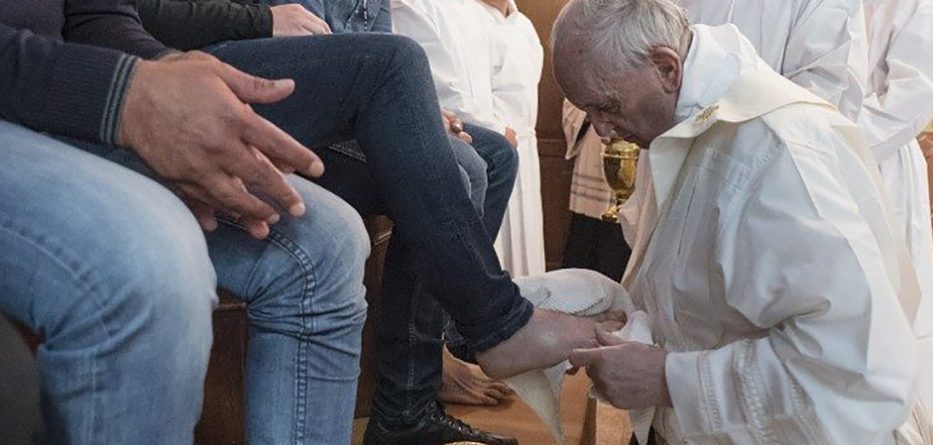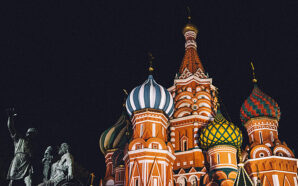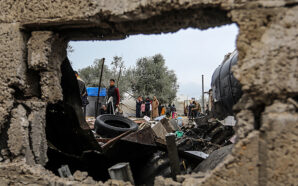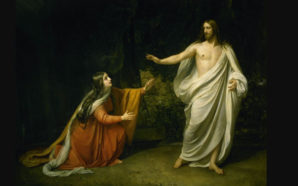Pope Francis has written his third encyclical entitled Fratelli tutti (On Fraternity and Social Friendship), which he addresses to all people of goodwill and offers as a proposal for a way of life ‘marked by the flavour of the Gospel’.
While the pope’s second encyclical, Laudato Si’ (On care for our common home), focused on our relationship with the natural world, Fratelli tutti focuses on our relationships with each other. The document’s release coincides with the conclusion of this year’s Season of Creation, and during this time of pandemic is offered as a contribution to ‘the rebirth of a universal aspiration to fraternity by acknowledging the dignity of each and every human person’. (FT 8).
Following the release of the new encyclical, Archbishop Peter A Comensoli encouraged the faithful to read the pope’s words: “Situated as we are in the latter stages of this Pandemic, Fratelli tutti offers much that we might embrace as we determine who we are as people of God in Melbourne, and how we might emerge from this time of exile to go on mission into the world with the beating heart of Jesus.
“I urge everyone to read it, and to then return to it with time and space to draw more deeply into the riches within.”
Read the full text of Fratelli tutti here or view the summary below.
Friendship and unity in a fragmented world
The document begins by explaining that our call to love others as brothers and sisters, even when they are far from us is a call to ‘open fraternity’, a love without borders. The encyclical offers eight chapters, each exploring themes of friendship and unity in a time of growing fragmentation, with a focus on the human family in a post-COVID-19 world. Below is a summary of each chapter.
Chapter 1: Dark clouds over a closed world
The first chapter describes the dark clouds over a closed world; these clouds extend to all parts of the world, hindering the development of universal fraternity (FT 9). What are these clouds? They are the circumstances that leave many people wounded by the roadside, discarded and rejected. The clouds plunge humanity into confusion, isolation, and desolation.
Under the dark shadows of this ever more tightly closed world, precious words like democracy, freedom, justice, and unity are manipulated and emptied of meaning (FT 14). We see people sowing despair and discouragement, hyperbole, extremism, and polarization—these are the strategies for dominating and gaining control over people. The system denies the right of others to exist or to have an opinion. Politics has been turned into marketing (FT 15). Persons considered no longer productive or useful are disregarded and discounted by this throwaway culture (FT 18) that prevails beneath the dark clouds of our closed world.
The Pope reminds us that love, justice, and solidarity are not achieved once and for all but that they have to be built and worked by each person day by day (FT 11).
Chapter 2: A stranger on the road
There is a stranger on the road, the pope says, wounded and cast aside amid the dark clouds of a closed world. Here Pope Francis draws us to the parable of the Good Samaritan.
As we look upon the stranger, the Holy Father says there are two attitudes we can take: we can pass by on the other side, or we can stop and be moved by pity. The type of person we are or the type of political, social, or religious movement we belong to will be determined by whether we embrace the injured stranger or abandon him. God leaves no room for an appeal to determinism or fatalism as a justification for our indifference.
We are being encouraged to create a different culture: one in which we resolve our conflicts and care for one another (FT 57) because we all have one Creator who is the defender of the rights of all. We are moved and called to expand our hearts to embrace the foreigner. It is a call to fraternal love that extends from the oldest text of the Bible to the New Testament (FT 61). Love does not care if a wounded brother or sister comes from one place or another. Love shatters chains and builds bridges; it enables us to create one great family, where all of us can feel at home. Love exudes compassion and dignity (FT 62).
A sick society is tempted to ignore others, look the other way, and pass by as if unaware of the reality. This is a theme the pope explored in his previous encyclical Laudato si’. This kind of society, he says, doesn’t want to be bothered by sentiment; it refuses to waste time with the problems of others. It is built on an indifference to pain (FT 64).
Pope Francis calls us to rediscover our vocation as citizens of our own nations and of the entire world. He summons us to be builders of a new social bond and to be aware that the existence of each and every individual is deeply tied to that of others: life is not simply time that passes; life is a time for interactions (FT 66).
Chapter 3: Envisaging and engendering an open world
God is universal love, and since we are part of that love and share it, we are called to universal fraternity, which is openness. There are no “others,” no “them”; there is only “us.” Human beings can live, develop, and find fulfilment only in the sincere gift of themselves to others; they cannot fully know themselves apart from an encounter with other persons. No one can experience the value of living without having real faces to love (FT 87).
Life exists where there is bonding, communion, and fraternity. Life is stronger than death when it is built on true relationships and bonds of fidelity (FT 87). Every healthy, authentic relationship opens us to others; we cannot reduce our lives to ourselves or to relationships with a small group (FT 89). This universal openness is existential rather than geographical; it has to do with our daily efforts to expand our circle of friends, to reach out toward the margins, to include those whom I do not naturally consider a part of my circle of interests even though they are close to me.
Every brother or sister in need, when abandoned or ignored by the society in which I live, becomes an existential foreigner (FT 97). There are persons who are treated as “hidden exiles,” persons with disabilities who feel that they exist without belonging and without participating. They may be citizens with full rights, yet they are treated like foreigners in their own country (FT 98).
A love capable of transcending borders is the basis of “social friendship,” the condition of possibility for universal openness (FT 99). The future is not monochrome: our human family needs to learn to live together in harmony and peace, without having to be all exactly alike (FT 100).
No one can remain excluded (FT 121). Development must ensure human rights—personal and social, economic and political, including the rights of nations and of peoples (FT 122). Business activity should always be clearly directed to the development of others and to eliminating poverty (FT 123).
Chapter 4: A heart open to the whole world
We experience social friendship, we seek what is morally good, and we practice social ethics because we know that we belong to a universal family. We are called to encounter, solidarity, and gratuitousness.
The conviction that all human beings are brothers and sisters forces us to see things in a new light and to develop new responses (FT 128). When our neighbour happens to be an immigrant, complex challenges arise. As long as no substantial progress is made to avoid unnecessary migrations—and that means creating the conditions needed for a dignified life and integral development in the countries of origin—we are obliged to respect the right of all individuals to find a place that meets their basic needs, and where they can find personal fulfilment (FT 129). We must do our best to welcome, protect, promote, and integrate those who arrive. To that end, we should increase and simplify the granting of visas, adopt programmes of sponsorship, open humanitarian corridors, provide housing, guarantee personal security, grant access to basic services, and ensure consular assistance, among other things (FT 130).
The arrival of persons who are different from us becomes a gift when we receive them with open hearts and allow them to be true to themselves (FT 134). [Read: Message for Migrant and Refugees 2020]
Chapter 5: A better kind of politics
In this chapter of his new encyclical Pope Francis illustrates how a call to charity and fraternity naturally leads to better politics – a timely reminder as the world seeks to emerge from the COVID pandemic.
A better kind of politics seeks the common and universal good, Pope Francis says, one that practices social charity and pursues human dignity. It can be carried out by men and women who, with political love, integrate the economy into a popular social, cultural, and political project.
The development of a global community of fraternity based on the practice of social friendship on the part of peoples and nations requires a better kind of politics, a politics that truly serves the common good (FT 154). Such a politics is different from the populism that arises when leaders politically exploit a people’s culture under an ideological banner for their own personal advantage or to continue their grip on power (FT 159). The truly “popular” thing is to provide everyone with the opportunity to nurture the seeds that God has planted in them (FT 162).
Pope Francis calls us to a social and political order whose soul is social charity. He urges us to rehabilitate politics as one of the loftiest forms of charity, inasmuch as it seeks the common good (FT 180). Such political charity is born of a social awareness that seeks the good of all people (FT 182). “Social love” makes it possible to advance towards a civilisation of love, to which all of us can feel called. It is a force capable of inspiring new ways of approaching the problems of today’s world, of profoundly renewing structures, social organizations and legal systems (FT 183).
Politicians are called to tend to the needs of individuals and peoples (FT 188). Politicians are doers and builders with ambitious goals; they should possess a broad, realistic and pragmatic gaze that looks beyond their own borders (FT 188). They are called to make the sacrifices that foster encounter and to seek convergence on at least some issues (FT 190).
Chapter 6: Dialogue and friendship in society
Pope Francis echoes his predecessors when he speaks of the important place that ongoing dialogue and friendship holds in the life of faith.
Dialogue is respectful, strives for consensus, and seeks the truth. Dialogue opens the way to a culture of encounter so that encounter becomes a passion, a desire, and a way of life. Those who dialogue recognise, befriend, and respect other persons. Approaching, speaking, listening, looking at, coming to know and understand one another, and finding common ground: all these things are summed up in the one word “dialogue” (FT 198).
If society is to have a future, it must respect the truth of our human dignity and submit to that truth. A society is noble and decent not least for its support of the pursuit of truth and its adherence to the most basic of truths (FT 207). Relativism always brings the risk that some alleged truth or other will be imposed by the powerful or the clever (FT 209). In a pluralistic society, dialogue is the best way to realize what should always be affirmed and respected apart from any ephemeral consensus. There are certain enduring values that make for a robust and solid social ethics (FT 211).
Life is the art of encounter. Pope Francis has repeatedly invited us to build a culture of encounter capable of transcending our differences and divisions. This means working to create a many-faceted polyhedron which represents a society where differences coexist, complementing, enriching and reciprocally illuminating one another, even amid disagreements and reservations. This also means finding ways to include those on the peripheries of life (FT 215). The word “culture” points to something deeply embedded within a people, its most cherished convictions and its way of life. To speak of a “culture of encounter” means that we, as a people, should be passionate about meeting others, seeking points of contact, building bridges, planning a project that includes everyone. This becomes an aspiration and a style of life.
Chapter 7: Paths of renewed encounter
In chapter seven of the encyclical, Pope Francis writes of the need for renewed encounter and the restoration of peace in societies throughout the world. We need boldness and truth (FT 225), he says, recognising that any renewal must begin with an acknowledgment of what has been.
Those who were fierce enemies have to speak from the stark and clear truth (FT 226). Only by basing themselves on the historical truth of events will they be able to make a broad and persevering effort to understand one another and to strive for a new synthesis for the good of all (FT 226). Truth is an inseparable companion of justice and mercy. All three together are essential to building peace (FT 227).
The path to peace does not mean making society blandly uniform; rather, it means getting people to work together, side-by-side, in pursuing goals that benefit everyone. The problems that a society is experiencing need to be clearly identified, so that different ways of understanding and resolving them can be found. We should never define others by what they may have said or done in the past; we should value them for the promise that they embody, a promise that always brings with it a spark of new hope (FT 228).
Authentic reconciliation does not flee from conflict, but is achieved in conflict, resolving it through dialogue and open, honest and patient negotiation (FT 244). Those who have endured much unjust and cruel suffering should not be asked to offer a sort of “social forgiveness” (FT 246). Forgetting is never the answer (FT 246), for we can never move forward without remembering the past (FT 249). Those who truly forgive do not forget, but they choose not to yield to the same destructive force that caused them so much suffering. This does not mean impunity; justice is properly sought solely out of love of justice itself and out of respect for the victims, as a means of preventing new crimes and protecting the common good (FT 252).
The Holy Father opines that true human development can only be achieved when wars between nations and peoples are no longer seen as solutions (FT 257). It is very difficult to invoke the rational criteria elaborated in earlier centuries to speak of the possibility of a “just war”. Never again war! (FT 258).
He also warns against relying on what appears as a means to achieving true justice: The goal of ultimately eliminating all nuclear weapons becomes both a challenge and a moral and humanitarian imperative (FT 262). The death penalty is inadequate from a moral standpoint and no longer necessary from the standpoint of penal justice. It is simply inadmissible. The Church is firmly committed to calling for its abolition worldwide (263). A life sentence is a secret death penalty (FT 268).
Chapter 8: Religions at the service of fraternity in our world
While the pope is speaking to all people of faith and goodwill, here he makes the case for the important role that religion plays in society.
Because of their respect for each human person as a creature called to be a child of God, the different religions contribute significantly to building fraternity and defending justice in society. Dialogue among religions seeks to establish friendship, peace, and harmony, and to share spiritual and moral values and experiences in a spirit of truth and love (FT 271).
As visible images of the invisible God, human persons possess a transcendent dignity; they are therefore by their very nature the subjects of rights that no one may violate (FT 273). Our witnessing to God benefits our societies. The effort to seek God with a sincere heart helps us recognise one another as travelling companions, truly brothers and sisters (FT 274).
The Church, while respecting the autonomy of political life, does not remain on the sidelines in the building of a better world, nor does it fail to reawaken the spiritual energy that can contribute to the betterment of society. It is true that religious ministers must not engage in the party politics that are the proper domain of the laity, but neither can they renounce the political dimension of life itself, which involves a constant attention to the common good and a concern for integral human development (FT 276).
The Church esteems the ways in which God works in other religions, and rejects nothing of what is true and holy in these religions. Yet we Christians are very much aware that if the music of the Gospel ceases to resonate in our very being, we will lose the joy born of compassion, the tender love born of trust, and the capacity for reconciliation that has its source in our knowledge that we have been forgiven and sent forth. For us, the wellspring of human dignity and fraternity is in the Gospel of Jesus Christ. From that source there arises, for Christian thought and for the action of the Church, the primacy given to relationship, to the encounter with the sacred mystery of the other, and to universal communion with the entire human family, as a vocation of all (FT 277).
Called to take root in every place, the Church has been present for centuries throughout the world, for that is what it means to be “catholic”. The Church can thus understand, from her own experience of grace and sin, the beauty of the invitation to universal love. Indeed, all things human are our concern. Wherever the councils of nations come together to establish the rights and duties of men and women, we are honoured to be permitted to take our place among them.
Pope Francis reminds us that for all Christians the journey of fraternity has a Mother: Mary. Having received this universal motherhood at the foot of the cross, Mary cares not only for Jesus but also for “the rest of her children”. In the power of the risen Lord, Pope Francis says, Mary wants to give birth to a new world, a world where all of us are brothers and sisters, where there is room for all those whom our societies discard, and where justice and peace are resplendent (FT 278).A journey of peace is possible between religions. Its point of departure must be God’s way of seeing things, because “God does not see with his eyes, God sees with his heart” (FT 281). We believers are challenged to return to our sources in order to concentrate on what is essential—worship of God and love for our neighbour—lest some of our teachings, taken out of context, end up feeding forms of contempt, hatred, xenophobia or negation of others. The truth is that violence has no basis in our fundamental religious convictions, but only in their distortion (FT 282). As religious leaders, we are called to be true “people of dialogue,” to cooperate in building peace not as intermediaries but as authentic mediators. Each one of us is called to be an artisan of peace, by uniting and not dividing, by extinguishing hatred and not holding onto it, by opening paths of dialogue and not constructing new walls (FT 284).
Mutual cooperation as the code of conduct
The encyclical concludes with an appeal from the Holy Father to all people of goodwill around the world: that ‘In the name of God and of everything stated thus far, we declare the adoption of a culture of dialogue as the path; mutual cooperation as the code of conduct; reciprocal understanding as the method and standard (FT 285).’ He also ends by calling on Charles de Foucauld, whose total surrender to God was expressed in his solidarity with the poorest in the African desert. It is within that setting – among the society’s poorest and forgotten – that Charles desired to be a brother to every human being, “the universal brother”.
‘May God inspire that dream in each one of us,’ Pope Francis concludes.
With thanks to Melbourne Catholic.








